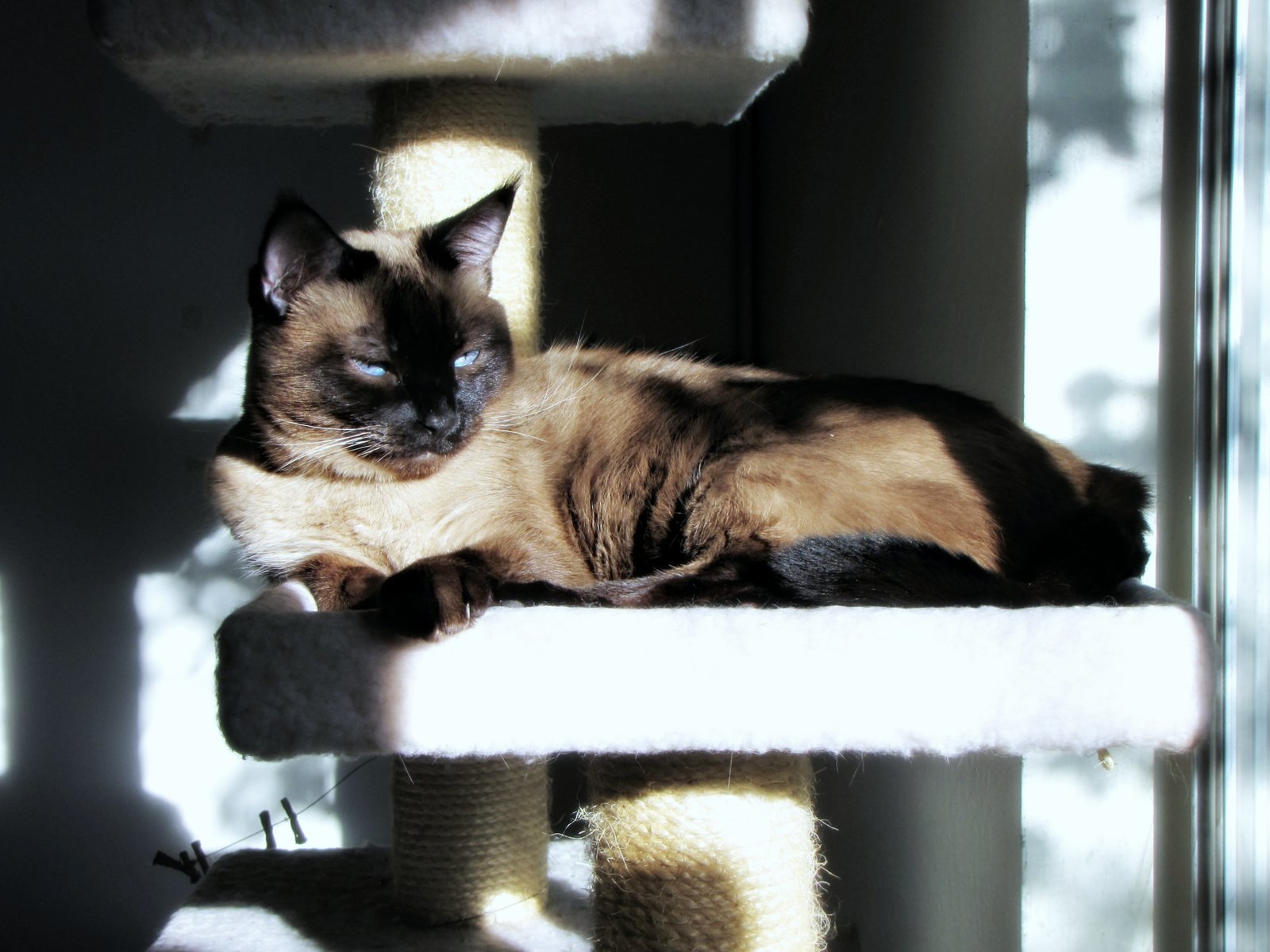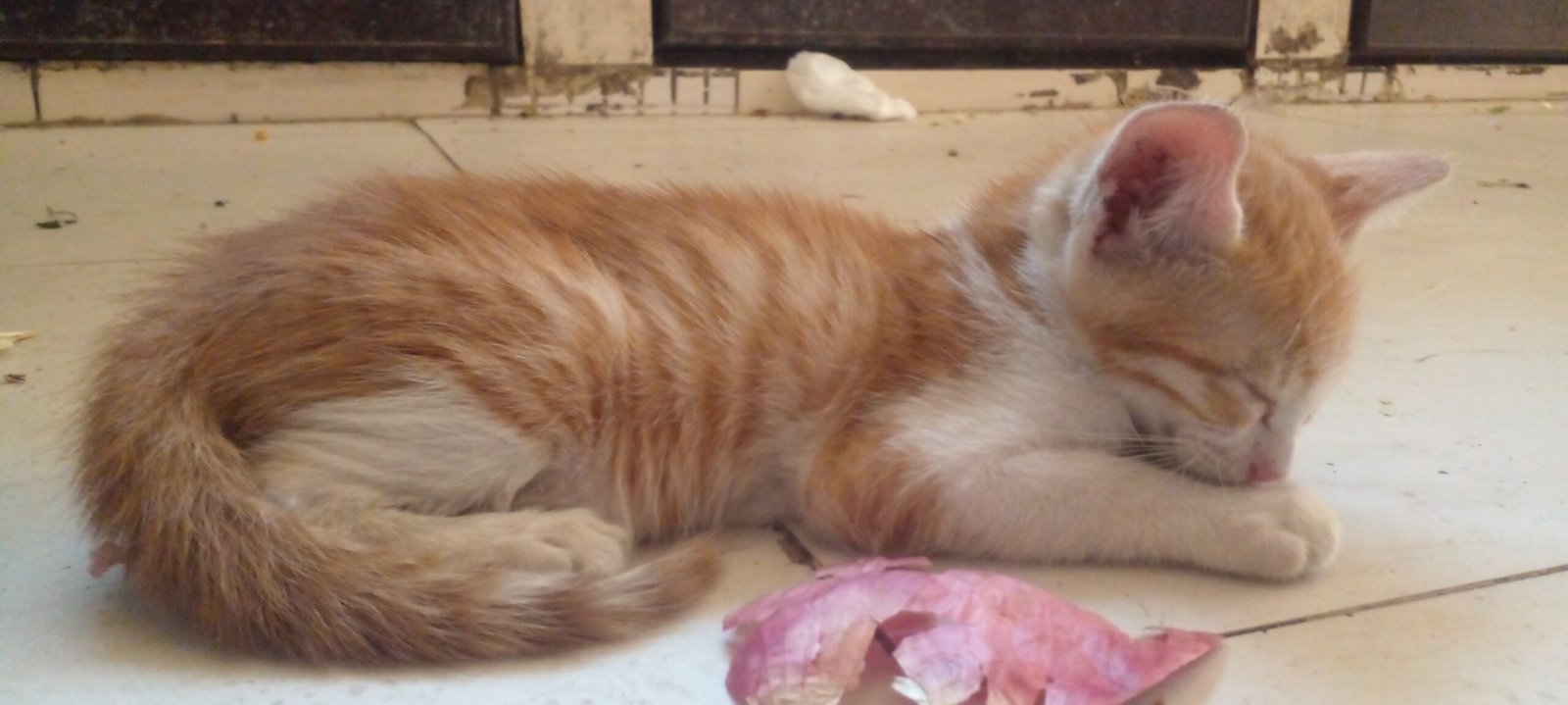Imagine coming home after a long, stressful day, and being greeted not by a whirlwind of barking and jumping, but by a gentle purr, a soft rub against your leg, and a deep, calming gaze. There’s something magical about the understated affection of cats that makes them the perfect companions for those seeking emotional stability. While dogs are often hailed as “man’s best friend,” cats quietly steal the hearts of millions with their soothing presence and effortless grace. If you’ve ever wondered why cats might be the more emotionally sustainable choice, prepare to be surprised and inspired. Here are twenty compelling reasons that will make every cat lover nod in agreement—and perhaps even convert a few dog people along the way.
Cats Require Less Emotional Labor

Cats have a remarkable ability to provide companionship without constantly demanding attention or affection. Unlike dogs, who often need frequent walks, playtime, and reassurance, cats are content to spend time alone and don’t rely on their humans for every emotional need. This means cat owners can relax and recharge without feeling guilty about neglecting their pet’s feelings. The emotional labor of keeping a cat happy is minimal, allowing you to focus on your own well-being. Cats often give you space when you need it most, quietly respecting your moods and boundaries. This independence makes them emotionally sustainable for people with busy or unpredictable lives. With a cat, you can experience deep connection without emotional exhaustion.
Cats Are Masters of Calming Presence

The gentle purring of a cat has been shown to reduce stress and promote feelings of tranquility. Sitting quietly with a cat curled on your lap, you can feel your heartbeat slow and your worries melt away. Unlike the boisterous energy of dogs, cats offer a soothing presence that doesn’t overwhelm. Their calm demeanor can be especially comforting during tough times, creating an emotional safe haven in your home. Many cat lovers describe their pets as emotional anchors, always there to ground them. Cats seem to sense when you need comfort, offering a soft nuzzle or peaceful company without overwhelming conversation. Their calming influence is like a warm, soft blanket for the soul.
Cats Are Low Maintenance Companions

Owning a cat doesn’t require the same level of daily commitment as owning a dog. Cats use litter boxes, groom themselves, and can be left alone for longer periods without distress. This lower maintenance allows owners to attend to their own emotional needs without feeling burdened or guilty. Cats are content with simple pleasures—a sunbeam, a cozy spot, or a quiet corner—making them easy to care for. Their independence means you can travel, work late, or have a busy social life without constant worry. This flexibility helps pet owners maintain a healthy work-life balance and reduces stress. With cats, emotional sustainability comes naturally.
Cats Respect Your Boundaries

One of the most emotionally sustainable aspects of living with a cat is their respect for personal space. Cats rarely invade your boundaries without invitation. They wait for you to approach or signal your openness to affection, rather than demanding attention at all hours. This mutual respect can be especially important for introverts or anyone who needs time alone to recharge. Cats seem to understand the ebb and flow of human moods, adapting their behavior accordingly. You never feel pressured to perform or engage when you’re not in the right mindset. Their gentle approach makes emotional connection feel effortless and natural.
Cats Help Reduce Loneliness Without Overwhelming

Cats are experts at offering companionship that isn’t intrusive. For people who crave connection but also value their solitude, cats strike the perfect balance. They will sit quietly with you, providing comfort just by being present, without demanding constant interaction. This makes them ideal for those who experience loneliness but are easily drained by too much socialization. The gentle, nonverbal communication of a cat—a slow blink, a soft paw on your hand—can be deeply reassuring. Cats let you set the pace of your relationship, making it easier to nurture emotional sustainability over time. Their quiet loyalty is both steadfast and soothing.
Cats Offer Nonjudgmental Support

There’s something profoundly comforting about the way a cat listens. When you talk to a cat, you’re met with silent acceptance—a soft gaze, a twitch of the ear, maybe a comforting purr. Unlike dogs, who may respond with excitement or confusion, cats simply absorb your words, offering nonjudgmental support. This lack of judgment creates a safe space to express yourself freely and honestly. Cats don’t care about your flaws or mistakes; they love you for exactly who you are. Their quiet acceptance fosters emotional healing and growth. Many cat owners find solace in this gentle support, especially during difficult times.
Cats Are Adaptable to Emotional Ups and Downs

Life is full of highs and lows, and cats have an amazing ability to ride those waves with you. Whether you’re celebrating a joyful moment or enduring a period of sadness, your cat will adapt. They know when to join in your happiness or quietly sit by your side when things aren’t going well. Cats don’t require a constant emotional high to be content, making them sustainable companions for people with fluctuating moods. Their flexible nature helps you feel supported no matter what you’re going through. This adaptability makes cats uniquely suited for people who value emotional resilience.
Cats Teach Mindfulness and Presence

Watching a cat can be a lesson in mindfulness. They move slowly, savor their food, and rest in the sun with total contentment. Cats live in the moment, unconcerned with the past or future. As a pet owner, you can learn a lot from their ability to be present. Spending time with a cat encourages you to slow down, breathe deeply, and appreciate the small joys of life. Their peaceful presence can inspire you to practice self-care and mindfulness in your own routine. In a fast-paced world, cats remind us of the importance of stillness and simplicity.
Cats Don’t Demand Constant Validation

Dogs often seek approval and attention, which can be emotionally taxing for owners who are already stretched thin. Cats, on the other hand, are secure in themselves and don’t need constant reassurance. This makes living with a cat less emotionally draining, especially for people who struggle with anxiety or self-doubt. You’re free to be yourself around your cat, knowing they won’t judge or pressure you. Cats give you permission to relax and let go of expectations. This lack of neediness makes emotional sustainability possible, even during challenging times. With a cat, love feels uncomplicated and enduring.
Cats Provide Consistent Routines

Cats thrive on routine, and their predictable habits can bring a sense of stability to your life. Feeding times, play sessions, and even the way your cat curls up beside you every night create comforting rituals. These routines help structure your day and provide emotional grounding. In times of chaos or uncertainty, the steady presence of a cat can be incredibly reassuring. Their consistency is a reminder that, no matter what happens in the outside world, some things remain dependable. This sense of security is invaluable for emotional sustainability.
Cats Are Less Prone to Separation Anxiety

One of the biggest challenges for dog owners is managing their pets’ separation anxiety. Dogs often become distressed when left alone, leading to emotional stress for both pet and owner. Cats, by contrast, are much more comfortable with solitude. They can entertain themselves and don’t panic when you leave the house. This makes it easier for owners to maintain their independence and manage their own emotional needs. Knowing your pet is content in your absence reduces guilt and worry. Cats’ self-sufficiency supports both their emotional health and yours.
Cats Encourage Emotional Self-Reliance

Cats model self-reliance in a way that subtly encourages their owners to do the same. By observing a cat’s independence, you may feel inspired to cultivate your own emotional strength. Cats don’t rely on others for their happiness—they find fulfillment in simple pleasures and quiet moments. This example can be empowering, helping you build resilience and confidence. Being around a cat can remind you that it’s okay to be alone sometimes, and that your own company is enough. This emotional self-reliance lays the foundation for a more sustainable, balanced life.
Cats Offer Gentle, Unpredictable Affection

The affection of a cat is never forced or routine. When a cat chooses to curl up on your lap, knead your blanket, or nuzzle your hand, it feels like a special gift. This unpredictability makes their love feel genuine and deeply appreciated. Unlike dogs, who offer affection on demand, cats choose their moments, making each interaction meaningful. This keeps the relationship fresh and emotionally rewarding. The thrill of earning a cat’s trust and affection is an experience that many describe as deeply fulfilling. Their gentle touch is often exactly what you need, when you need it most.
Cats Are Quiet and Peaceful Companions

Living with a cat means enjoying a home filled with quiet, peaceful energy. Cats rarely bark or whine; instead, they communicate with soft meows, purrs, and gentle body language. This tranquility is a welcome relief from the noise and chaos of daily life. For people who are easily overwhelmed by loud environments, cats offer a calming oasis. The soothing sounds and peaceful presence of a cat can help lower anxiety and promote relaxation. Their quiet companionship supports emotional sustainability by creating a space where you can truly unwind.
Cats Encourage Healthy Emotional Boundaries

Learning to respect a cat’s boundaries teaches owners the importance of healthy emotional limits. Cats are clear about when they want attention and when they need space, modeling behaviors that can be beneficial in human relationships. This mutual understanding helps foster respect and communication, both with your pet and with others. Cats remind us that it’s okay to say no, to take time for ourselves, and to ask for what we need. These lessons in emotional boundaries are invaluable for personal growth and well-being. By setting a good example, cats help owners lead more balanced, emotionally sustainable lives.
Cats Help Ease Anxiety and Depression

The simple act of petting a cat has been shown to lower anxiety and ease symptoms of depression. Their rhythmic purring and warm presence can provide comfort during difficult moments. Many people find that spending time with a cat helps them feel less alone and more connected to the world. Cats don’t judge or criticize, making them safe confidants for those struggling with mental health issues. Their quiet companionship offers hope and healing without pressure. For many, the emotional support of a cat is life-changing.
Cats Foster Appreciation for Small Joys

Cats find happiness in the simplest things—a cardboard box, a sunbeam, or a playful chase of a feather toy. Their ability to enjoy life’s small pleasures can inspire owners to do the same. Living with a cat encourages mindfulness and gratitude, helping you slow down and savor the moment. This appreciation for the little things is a powerful tool for emotional sustainability. When life feels overwhelming, watching your cat revel in a simple game can be a reminder that happiness doesn’t have to be complicated. Cats teach us to find joy in every day.
Cats Are Less Likely to Cause Emotional Overwhelm

Some pets can be overwhelming, especially for people who are sensitive or easily overstimulated. Cats, with their gentle ways and quiet demeanor, are less likely to trigger emotional overload. They won’t bombard you with constant demands or high-energy antics. Instead, their presence is soothing and manageable, making them ideal for people who need peace and calm. Cats help create an emotionally sustainable environment where you can relax and recharge. Their subtle affection is a balm for the soul.
Cats Offer Comfort in Grief and Sadness

During times of loss or sadness, cats seem to sense your pain and offer silent comfort. They may curl up beside you, purr softly, or simply sit close by, providing warmth and companionship. This quiet support can be more healing than words or gestures. Cats don’t try to fix your sadness—they simply share it with you, making the burden a little lighter. Their presence can bring light to the darkest days, reminding you that you’re not alone. Many people cherish the quiet, unwavering comfort of a cat during times of grief.
Cats Inspire Unconditional Love and Acceptance

Perhaps the most powerful reason cats are emotionally sustainable pets is their ability to inspire unconditional love and acceptance. Cats love their owners for who they are, flaws and all. They don’t care about your job, your appearance, or your mistakes. This pure, uncomplicated love creates a foundation of emotional security and self-worth. Knowing that your cat loves you no matter what can be incredibly empowering. It’s a reminder that you are enough, just as you are. Cats teach us to love ourselves and others more deeply, making them truly extraordinary companions.
Hi, I’m Bola, a passionate writer and creative strategist with a knack for crafting compelling content that educates, inspires, and connects. Over the years, I’ve honed my skills across various writing fields, including content creation, copywriting, online course development, and video scriptwriting.
When I’m not at my desk, you’ll find me exploring new ideas, reading books, or brainstorming creative ways to solve challenges. I believe that words have the power to transform, and I’m here to help you leverage that power for success.
Thanks for stopping by, Keep coming to this website to checkout new articles form me. You’d always love it!






